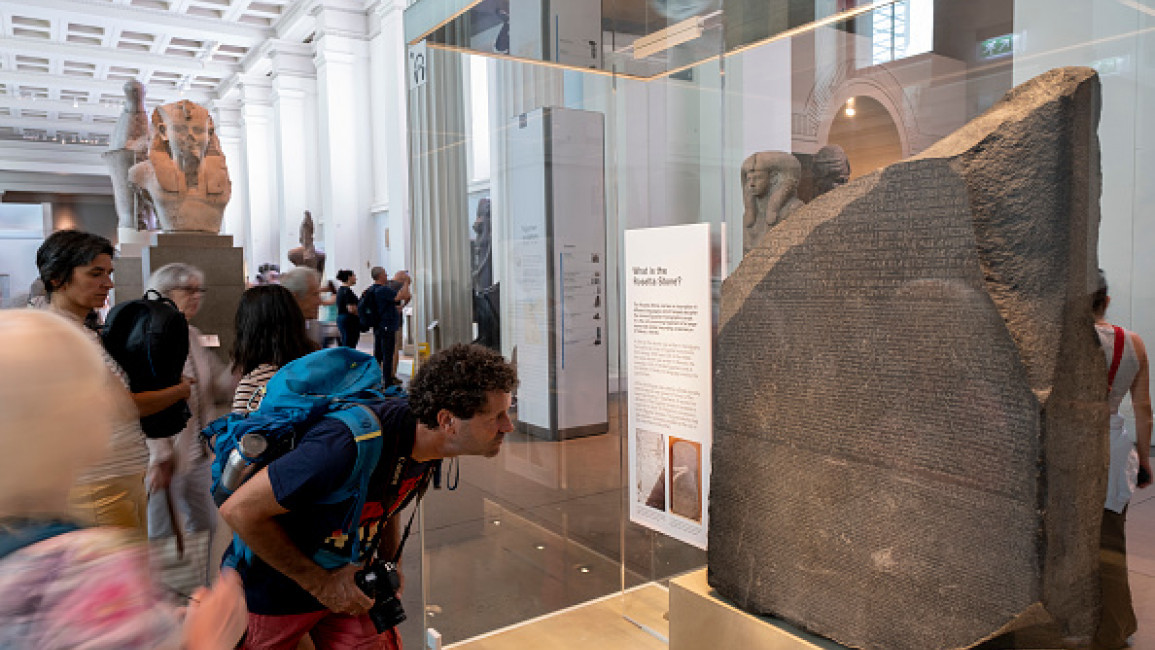'It was no potato:' Ancient Egyptian artefacts unearthed at Scottish school
Over the weekend, London-based The Guardian chronicled how pupils at a private school in Scotland came to unearth a collection of ancient Egyptian antiquities on different occasions between 1952 and 1984.
The story of the discoveries will be told for the first time by the former curator of the National Museum of Scotland, Dr Elizabeth Goring, and her successor, Dr Margaret Maitland, in the upcoming Proceedings of the Society of Antiquaries of Scotland due to be released on 30 November.
In 1952, a schoolboy was digging up potatoes on the grounds of his school in Fife as part of a punishment when he tumbled across a bulbous shape that he had initially mistaken for a potato. To his surprise, it was no potato but some 4000-year-old Egyptian masterpiece.
"This was to be the first of 18 Egyptian antiquities unearthed on three separate occasions by schoolboys over some 30 years in the most unexpected of places – Melville House, a historic building near the small parish of Monimail in Fife," according to the report.
The London-based newspaper further said that most antiquities are now showcased in National Museums Scotland (NMS), "which is for the first time telling the remarkable story behind the discoveries."
"In 1952, Melville House was occupied by Dalhousie School. A teacher brought the boy's discovery to the then Royal Scottish Museum – now NMS – where its distinguished Egyptologist, Cyril Aldred, realised its significance as an important mid-12th dynasty red sandstone statue head (about 1922-1855 BC), whose quality suggests a royal workshop," the paper reported.
To everybody's surprise, 14 years later, in 1966, an Egyptian bronze votive statuette of an Apis bull was also found at the same school grounds by pupils doing a PE class outdoors, an artefact that dates back to the Late or Ptolemaic Period (about 664-332 BC).
The supervising teacher, "Mr McNie", who brought the object into the museum for identification, by the strangest of coincidences, turned out to be the very boy who found the head in 1952 mistaken for a potato.
McNie took the bull away with him, and it disappeared without a trace after Aldred had offered to have it cleaned by the museum staff.
Years later, in 1984, Dr Elizabeth Goring, the museum's curator of Mediterranean archaeology, came across a group of teenagers visiting with an object for her to identify. It turned out to be an ancient Egyptian bronze figurine of a man.
At this moment, Goring recalled her predecessor, Aldred, telling her about prior Egyptian finds in Melville's grounds when she realised that the statue found there must be connected.
"Its discovery established beyond doubt that there had once been a collection there, but how the objects got there, and why they ended up buried, was a mystery," the report said.
Experts at the British Museum agreed the figurine represented a priest bringing offerings, an unusual subject, likely created during the 25th dynasty (about 747-656 BC).
Goring got intrigued, deciding to dig deeper. Exploring the site further, she discovered other objects, ranging from the top part of a delicate faience figurine of the goddess Isis suckling her son Horus to part of a faience plaque bearing the Eye of Horus.
"But, in 1984, it was agreed that the finds of that year should be treated as treasure trove and acquired by the museum," The British newspaper reported.
"Every curator can tell you some extraordinary stories, but this is one of the most extraordinary that happened to me in my 26 years at the museum," Going recalled.
In recent years, Egyptian archaeologists and intellectuals have frequently launched campaigns calling for the return of Egypt's artefacts showcased at British museums and elsewhere. Top of the list of items sought for return is the famous Rosetta Stone.
In 2019, Egyptian-British novelist Ahdaf Soueif resigned from her position as the trustee of the British Museum, arguing that the entity needed to address the debate around the return of looted colonial-era Egyptian artefacts.



